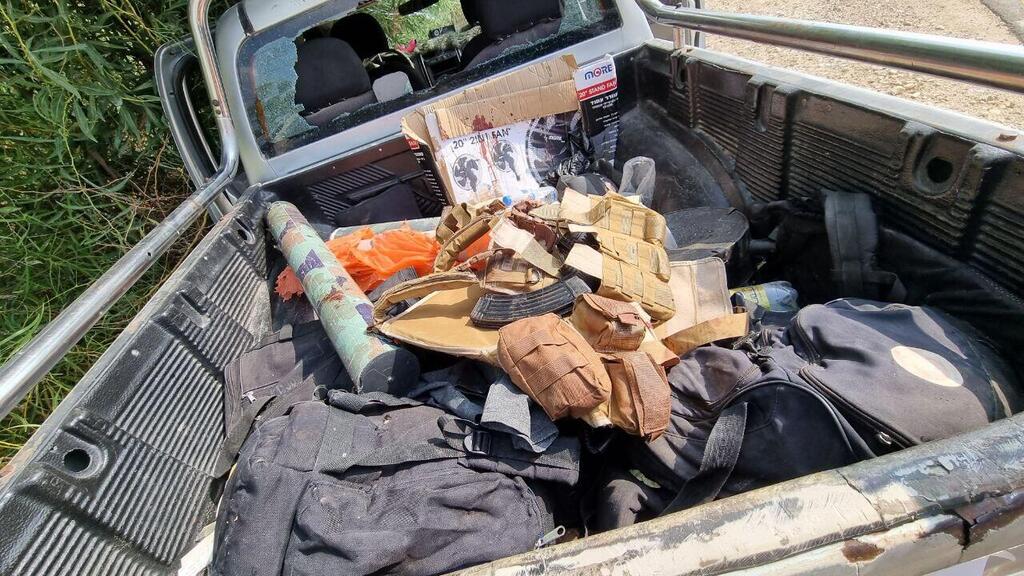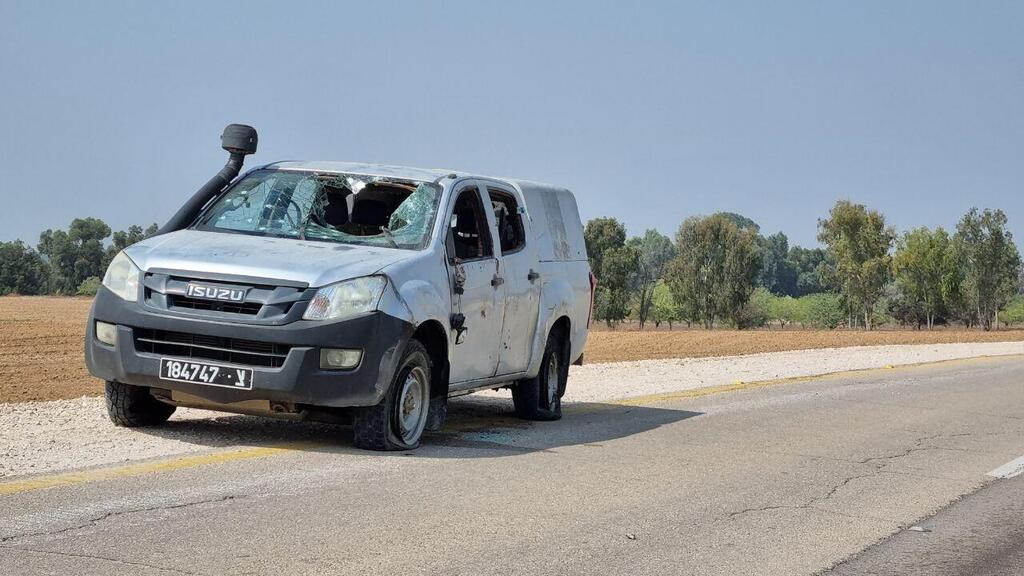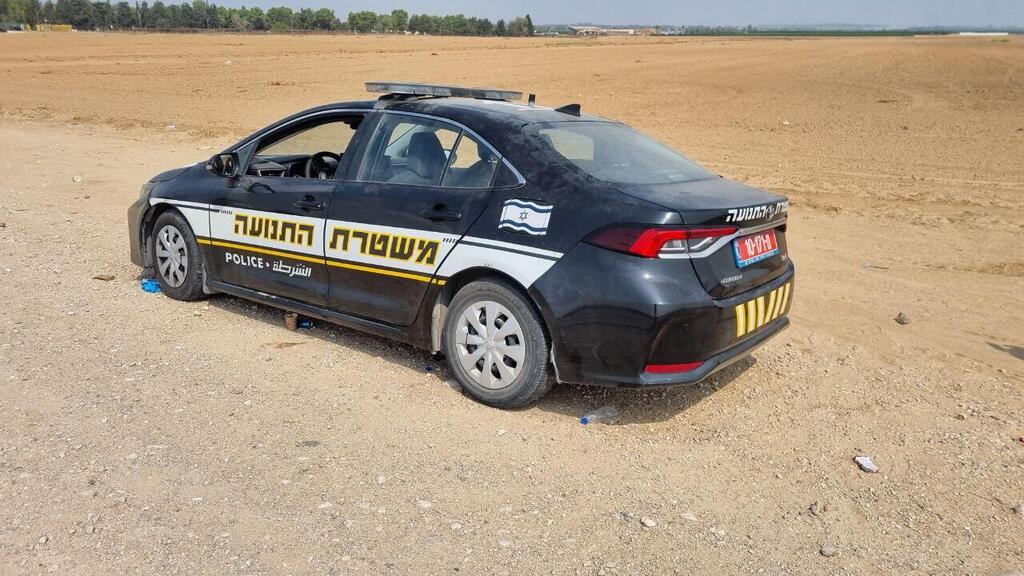Getting your Trinity Audio player ready...
On Sunday, a large truck parked next to Kibbutz Re'im’s entrance, and soldiers from the IDF’s Military Rabbinate rolled heavy black bags into it while searching for body parts among the scorched buildings, into which Hamas terrorists had thrown a grenade. At some point, two soldiers sat down and cried, nearly collapsing.
More stories:
Twenty-five bullet-riddled vehicles were aligned along the road leading to the peaceful kibbutz in southern Israel. Six of these were the pickup trucks in which the terrorists arrived. The body of one terrorist lay adjacent to a pickup, positioned as if attempting to flee before being shot by a soldier or police officer.
The scenes in the kibbutz were surreal, almost apocalyptic: the white pickup trucks, bearing Palestinian identification plates, were numbered with tactical markings as if they were armored vehicles or tanks. Hamas planned this battle and distributed its sectors well among its special forces, as part of a combat plan that’s been concocted over many months – an operation that would be no less impressive were it carried out by IDF forces.
Thirty hours have elapsed since the onset of Hamas' surprise offensive until police sappers began to remove the terrorists' pickup trucks. This delay occurred because it was not until 2am that IDF special forces concluded clearing the area of the relatively well-trained terrorists who massacred peaceful revelers at a music festival outside the kibbutz on Saturday. The forces eliminated dozens of terrorists in close-quarters combat.
Inside the pickup trucks, I discovered a large bag filled with dates, Qurans, battle notebooks and dozens of assorted combat equipment items: high-quality road guard vests packed with explosive grenades, shoulder-fired missiles, RPG rocket launchers, fully-loaded AK-47 magazines, Claymore mines and small throwable explosives.
The strewn military communication devices indicate warfare carried out by the terrorists was very organized. Bags filled with various military equipment and ammunition belts are found throughout the area. Most of the combat equipment they carried was of Soviet origin.
A volunteer who lives in the area arrived at the kibbutz, warning me to stay away from a Russian-produced hand grenade that hadn't exploded and was lying a meter away from me. Under a large eucalyptus tree, we saw a team of IDF Paratroopers lying in the shade, trying to catch a break.
"First, we evacuated Jewish bodies, and what you see here are mostly the bodies of terrorists, although there may still be bodies of Jewish civilians inside the kibbutz homes," one of the soldiers said. He had killed three terrorists in battle 14 hours ago.
Suddenly, an Israeli civilian driving a pickup truck stopped in front of us and exited his car. Without asking us, he began gently removing the white bags that covered the terrorists’ bodies, unaware of who they were. "I'm looking for my two brothers; they were at a party. I'm afraid what will happen if I identify them, but I have to know what happened to them," he said, his voice trembling.
Not far from there, another large vehicle was parked. It was a commercial vehicle that appeared to be like a police patrol car, riddled with bullet holes. Inside, there was a crate of vodka bottles, a soccer team scarf, camping equipment, open toiletry bags, sunglasses and a lot of soaked blood.
We quickly realized that it was the car of one of the revelers, but it was hard to tell if the driver had been trying to escape the terrorists or was caught by them beforehand. The tires were punctured, and the metallic smell of blood was very noticeable, even in the back seats.
On the driver's seat, there were two AK-47 bullet casings, suggesting the terrorists had also tried to make sure their victims were dead. Beside the car on the ground, a dusty cardboard box was placed with "7.62" written on it; it was empty, indicating the terrorists had reloaded magazines from their stocks there.
Meanwhile, gunshots could be heard from the nearby area, followed by the sound of a tank firing. A fierce encounter was taking place near Kibbutz Magen, with 10 terrorists who had been hiding in the fields since Saturday morning.
The forces also used their armored vehicles in the intense firefight. An IDF commander approached and requested that we leave the area. "You can hear what's happening. This is a war zone, and there's a high chance of more terrorists hiding in the fields," he told us.




